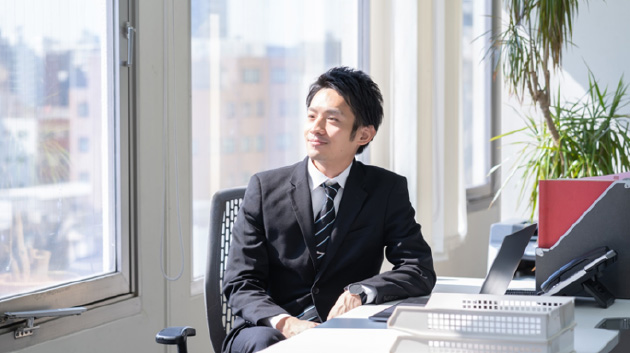Habits of Highly Successful Entrepreneurs(Part 1)
World Teacher's Message No.279
Entrepreneurship is one of the dreams of young people, but many restrain themselves from achieving this dream because they are unsure whether they can take the unsecure route in such a highly competitive society. When thinking about Japan’s prosperity, however, I think it’s necessary to say, “dream big.” How should I be thinking about this?
Jan. 13th, 2012 Happy Science Headquarters
From Q & A of lecture, “Getting Out of Corporate Deficits”
There are difficulties of being an employee, but when you’re part of an organization, other people can cover for your work which allows you to receive a wage and make a living without actually contributing much. For instance, even when you’re unable to sell a product, other people’s sales will cover for you, allowing you to make a living on a consistent basis, which is beneficial.
However, when you quit your job or start your own company from inception, things are not this easy. You’ll need spirit. You’ll need motivation. You’ll need courage. And on top of all these, there are substantial aspects that are solely determined by luck.
It’s difficult to tell what kind of talents you have until you actually do something. People who try to be an entrepreneur tend to be overconfident, so they overestimate their abilities. However, most of the times the verdict comes within three years and their title as “CEO” will be taken away due to their lack of ability.
There is a middle, safer route of entrepreneurship, which is gaining work experience from companies with similar structure and growing independent from there.
If they retain the same exact business style, they might be received with anger, but people can change something while still being able to use the things they learned. It is extremely difficult to start something from scratch.
Furthermore, even when you study from a company, the “DNA” embedded in the company might not match yours and it might be difficult for you to throw this away.
Preventing Ideas From Running Out
In addition to spirit, motivation, and courage, you have to be the type of person who can keep coming up with new ideas to become a successful entrepreneur.
The source of this idea, I believe, is strong curiosity. It is important to continuously gather information with an open mind and intention.
There might be brief periods where ideas come up effortlessly, but like wells, these ideas are limited. You need to make sure that these wells of ideas don’t dry up by putting in a systematic effort.
To do this, you must widen your area of curiosity little by little and continue to acquire new information.
According to business visionary Peter Drucker, the essence of innovation is system abandonment. Innovation can take the form of what’s left after throwing away old ideas, or from the combination of different disciplines.
You can try to come up with something completely new, but this is extremely difficult. It’s easier to start off by throwing away parts of existing systems or through the unusual combinations of different disciplines.
The Effort to Create Something New
For instance, Toraya, famous for their Japanese sweet-bean jelly snack known as yokan, was established around the year 1600. They have kept their flavor for 400 years, but they’re still in trouble if their flavor loses the interest of consumers .
People are working to create new products, so they have built “Toraya Café,” which combines Western-style food with Yokan and have also established a new brand by combining their products with red bean paste so they can survive.
If Toraya threw away their style of protecting traditional flavor, they would cease to be Toraya. Therefore, they put in a modern taste through the opening of Toraya Café.
To raise another example, the notion of coffee has also changed in recent years. New products come out every season, and it is sometimes questionable whether they can still be called coffee.
They might come up with strawberry coffee during strawberry season, persimmon coffee during persimmon season, and matcha coffee when Japanese tea tastes good. They’ll mix chestnuts, whipped cream, caramel, and whatever else they want, so it can’t really be considered “coffee” anymore.
Their main business concept is not “coffee” anymore, but “a delicious drink,” or “a drink that can delight customers.”
Companies either need to make a product or offer a service that a typical person enjoys. We need businesses that can do these and at the same time create something new, and these are the businesses that will survive.
However, it has to be noted that these ideas will be copied right away. This is inevitable, and these imitations will provide low prices too. Companies must work hard so that they are not crushed by these rivals.
Knowing the Limits of Your Ability
Perspiration and diligence, combined with research, is the only available path.
It’s important to start developing things that are not of use at the moment but might be in the future; in other words, it is important to know the limits of your skills. Once you know this, you must think of ways to support them or be able to endure the consequences from the limits.
Drucker has stated that even Leonardo da Vinci, often said to be a Renaissance man, wasn’t omnipotent, and I agree with this.
He had a decent talent in paintings and sculpture, but the rest of his work and sketches have only endured time; even the “Renaissance man” didn’t have too many things that he excelled at. A person can only have one, or perhaps two strengths but not more. The rest of the parts need to be covered by something else.
These acknowledgements must be made at some point.
(Continued)



















